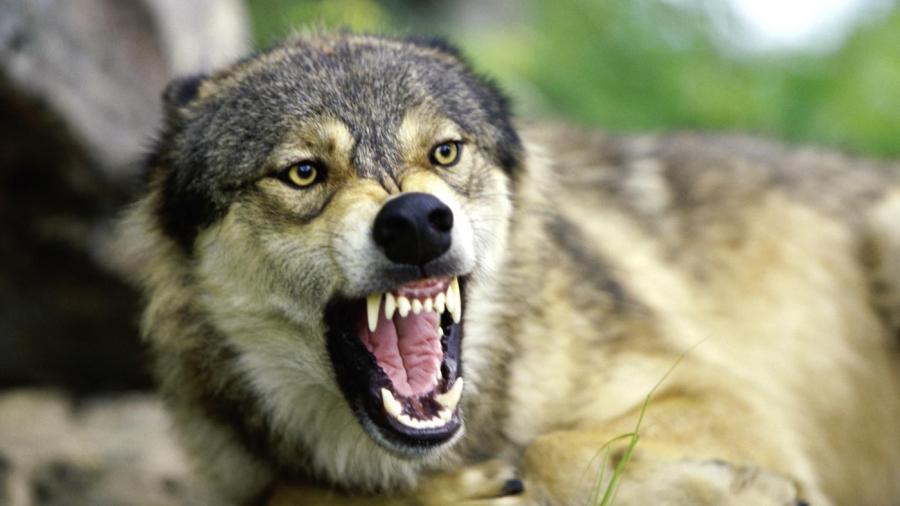How Do Wolves Protect Themselves?

Wolves use their sharp teeth, great strength, sharp senses and social structure to protect themselves from threats. Wolves are among the most social animals in the world, and through virtue of sheer numbers, they dissuade many would-be predators. Wolves are also quite fast and can run for miles without tiring.
Wolves are apex predators in all places they call home. While a large grizzly bear, mountain lion or polar bear may be able to attack and kill a single wolf, such animals are no match for a pack of wolves. This pack-forming habit even enables wolves to predate on these large animals, although they normally hunt deer, elk and other herbivores.
Wolves have very good eyesight, but their sense of hearing and smell are their strongest senses. Wolves can track animals with their sharp noses, but these noses also help the wolves become aware of predators. Wolves can also hear approaching animals very well, making it very hard to sneak up on them.
Wolves can travel incredible distances when necessary. This helps them to exhaust their prey when hunting, but it can also provide a way for wolves to escape threats. Few animals can match the endurance of a wolf.





